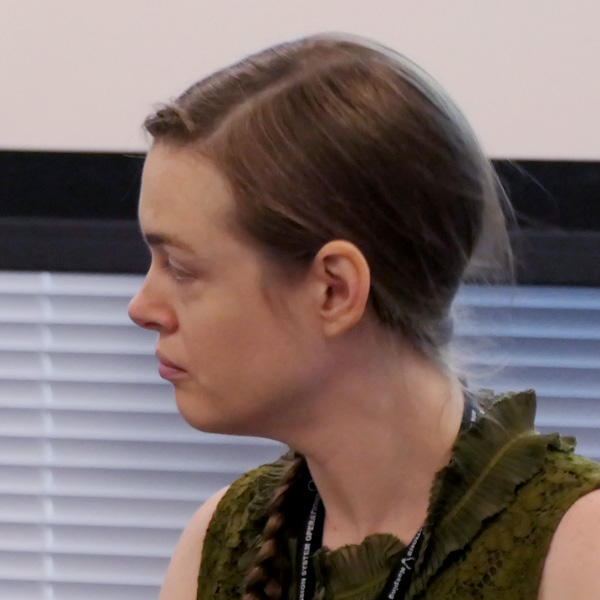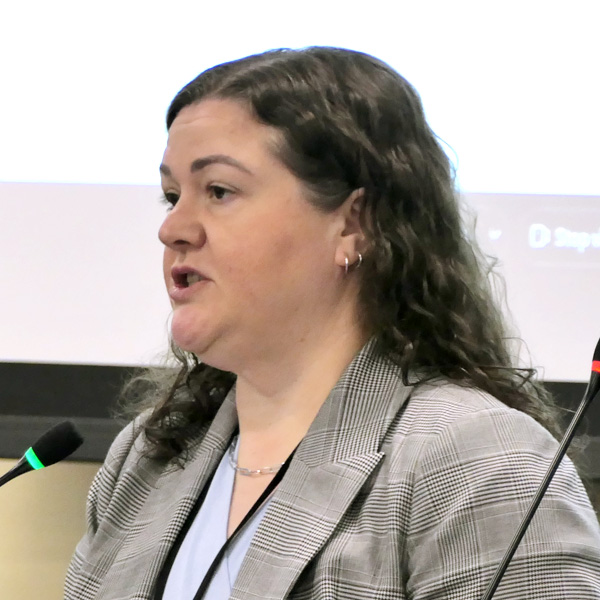The West Coast’s floating offshore wind industry is getting a boost from nearly $38 million in research and development funds from the California Energy Commission’s Electric Program Investment Charge (EPIC) program.
During a Nov. 5 CEC meeting, several companies presented projects intended to increase efficiency and reduce costs for the offshore wind sector, including through improved environmental monitoring around wind turbines, new designs for technical components and innovative manufacturing solutions.
The ratepayer-funded EPIC program invests in technology development to advance clean energy solutions. The program’s specific goals related to offshore wind are to lower costs and to reduce technical and financial risk, as well as inform environmental mitigation, deployment planning and permitting.
Two solicitations are currently in progress.
The first awarded nearly $9 million to a handful of companies to advance technologies that detect marine life or ecosystem processes to assess risks and impacts in wind energy areas.
The second solicitation awarded nearly $12 million to projects to advance designs for floating offshore wind mooring lines and anchors. Another $17 million will go to solicitations currently under consideration, including projects seeking to reduce turbine design costs and improve port readiness.
“We are, as many folks know, a much deeper environment than the existing offshore wind systems [in the Atlantic], so reducing the costs of mooring lines and anchors is going to be paramount,” Daphne Molin, supervisor of CEC’s Research and Development Division, said at the meeting. “Additionally, environmental impacts and potential concerns are extremely important. We want to make sure that those designs are put up front into the design work so that these designs can be best placed for California.”
Environmental Monitoring
California’s wind energy areas are rich with seabirds protected under the Migratory Bird Treaty Act and the Endangered Species Act. Integral Consulting presented an EPIC-funded project designed to analyze those risks.
“Birds like the albatross and the petrel may be more vulnerable to collisions with floating offshore wind turbines because of their reliance on wind rich areas to propel themselves long distances between their breeding and foraging grounds offshore,” Grace Chang, senior science advisor at Integral, said. “Some of these birds fly at night and some at heights that overlap with rotor swept zones.”
To address these vulnerabilities, Chang said her company identified the need to generate bird and bat collision risk models to estimate species-specific impacts. The models require information about wind farm and turbine characteristics, environmental covariance, and bird and bat qualities. Collision risk models are most sensitive to the “avoidance rate,” which requires detailed information about bird and bat behavior over time.
Integral’s project seeks to fill existing knowledge gaps in understanding collision risk models, bird and bat abundance, and behavioral patterns near wind energy areas. The project integrates real-time testing and validation, 3D sensing technologies to quantify bird and bat avoidance of wind farms, and collision risk across three scales — macro, meso and micro.
The macro scale refers to a species avoidance of the entire wind farm, while meso is avoidance of individual turbines or rotor-swept zones, and micro is a last-second avoidance of a collision.
Field testing is already underway. Integral collected three months of data in California’s Humboldt wind energy area and deployed drones and radars in coastal environments in San Luis Obispo and Santa Barbara counties.
“We have a very rich set of data — multiple terabytes of data actually — that we’re in the midst of analyzing,” Chang said.
The Lawrence Berkeley National Laboratory also received funds for a project to cost effectively monitor the impact of wind farms on underwater species. The project considers the need for mooring lines and other fixed structures that would be tethered to the ocean floor due to the deep waters of Pacific OSW areas.
“How do we deploy floating offshore wind responsibly and harvest clean energy while protecting the marine species?” Yuxin Wu, staff scientist and geophysics department head at the University of California, Berkeley, said. “That is a big challenge.”
The lab is developing a distributed technology that will use optical fibers to sense temperature, vibration and other characteristics more than 100,000 meters deep to monitor species behavior and potential collisions with wind infrastructure.
Anchors and Mooring Lines
Sperra, a renewable energy startup, received CEC funding to develop and deploy concrete anchors for floating offshore wind platforms that it says will be less expensive and more environmentally friendly than traditional anchors.
The company is using its expertise in 3D concrete printing to develop a “next-generation suction anchor and torpedo anchor made from concrete.” The process is expected to reduce manufacturing costs by 37%-82% and carbon emissions by 55%-96% compared with steel anchors, according to company CEO Jason Cotrell.
“Concrete is actually a relatively low-carbon material compared to steel on a per-pound basis,” Cotrell said. “It has half the carbon footprint, and it can be made more green with certain mixes.”
Sperra is manufacturing 3D-printed concrete anchors out of the Port of Los Angeles for a variety of different markets, all of which will be deployed in California. It’s also researching 3D printing for floating foundations and docks.
To determine the design of the concrete anchors, Sperra analyzed seismic activity and seabed composition information in the Humboldt and Morro Bay wind energy areas to conceptually design six concrete anchors and two steel anchors for reference.
Sperra’s hope is to expand and accelerate the growth of California’s concrete and floating wind workforce, research and development capabilities and innovation ecosystem.
Another award recipient was the University of Maine Advanced Structures and Composites Center, which is developing a synthetic mooring line system for a 15-MW-plus floating wind turbine in the Humboldt and Morro Bay wind energy areas that could minimize impact to the ocean ecosystem.
“For an estimated 15 GW of offshore wind capacity, you’re going to need over 1,000 kilometers of mooring lines. The supply chain can’t currently handle that amount of material,” Spencer Hallowell, senior engineer at the University of Maine, said. “And then the installation vessels that may be either flagged for the U.S. or internationally also aren’t available to do that type of installation.”
The use of synthetic ropes can help alleviate supply chain concerns by eliminating heavier components like steel, Hallowell said.
In addition to studying the environmental conditions to determine the exact design of the mooring system, the department will monitor the system for entanglement of marine species and of fishing gear that could also capture marine animals.
The Schatz Energy Center and consulting company H.T. Harvey and Associates won funding for the “MoorSEA” project, an effort to combine mooring and monitoring technology by developing sensors that sit on mooring lines. Project researchers are working to identify which types of species, fishing gear and debris are most likely to become entangled in offshore infrastructure.
A final award recipient, the National Renewable Energy Laboratory, is developing a shared mooring system that would allow individual floating offshore wind turbines to share mooring lines or anchors.
“We want to develop these shared comprehensive mooring solutions to minimize costs, minimize failure risk and also minimize environmental impact for large scale floating wind farms in California,” Matt Hall, senior engineer at NREL, said. “There’s potentially a lot of benefits we can unlock.”

